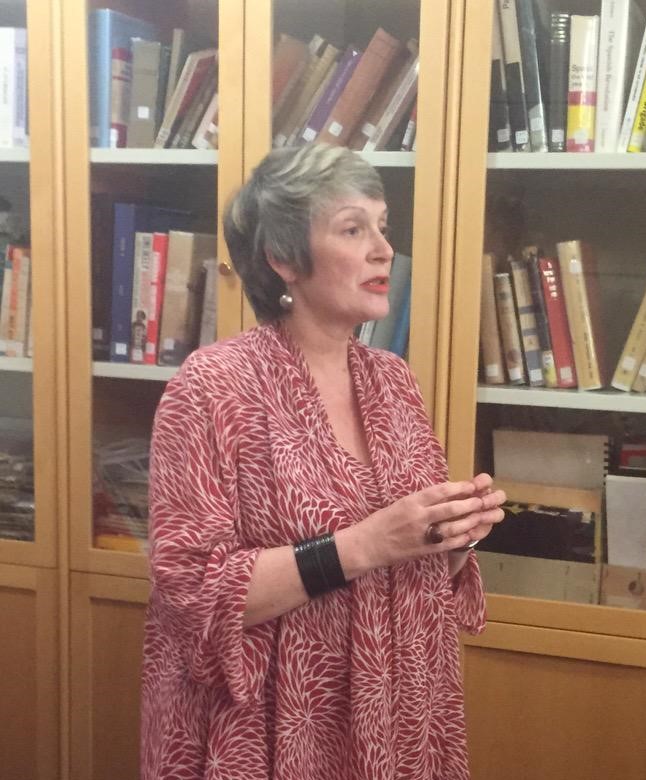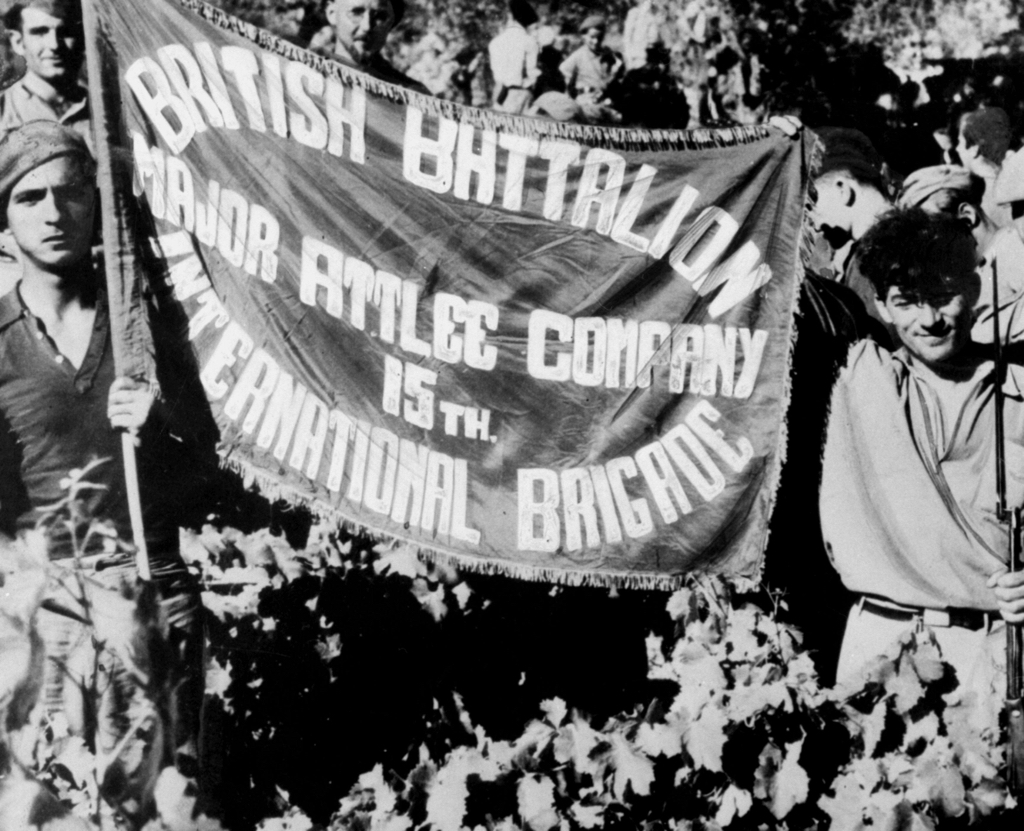Chair of the Communist Party, Liz Payne, shines a light on communist attitudes to global class struggle. This article first appeared in the Morning Star.

Working class internationalism is the hallmark of the communist movement worldwide.
What did the internationalism of the Communist Party of Britain look like during its first hundred years and what forms will it take going forward?
The autumn months in Britain are an especially good time to think about internationalism, with a number of anniversaries and events of far-reaching significance falling in October and November.
Today, in more and more towns and cities, wreaths are being laid in ceremonies organised by the CP with the support of the International Brigade Memorial Trust.
The aim is to mark with deep gratitude the selfless contribution of the International Brigades and medical volunteers who fought in defence of the Spanish Republic against the long-planned fascist assault of the combined forces of Franco, Hitler and Mussolini.
In October 1938, Dolores Ibarruri, La Pasionaria, made her famous speech to the departing brigades.
She honoured those who had died and would forever lie “shrouded in Spanish earth” and those now leaving, who stood before her.
She told how International Brigades had been formed to help save a threatened country’s freedom and independence. Those who came offered themselves unconditionally.
“They gave us everything … and they asked us for nothing,” she said. Thousands had gone from Britain. More than 500 died.
Every October 4 we also mark the great victory at Cable Street in 1936.
United and concerted action by the people of east London not only halted the Blackshirts and secured the local streets.
The defeat prevented fascism from creating a mass base in Britain and another ally for the Nazis and other Axis powers. It was an act of true internationalism.
October is Black History Month in which we unravel and expose the tyranny of colonial and post-colonial oppression and exploitation and the tools of racism and fascism, employed to sow the hatred and disunity on which capitalism and imperialism depend for their continued existence.
The legacy runs deep in Britain, and Black Lives Matter is doing much not only to shine a light on history but to lay down a marker. Things cannot continue as they are.
In early November, we celebrate the victory of the Great October Revolution in Russia in 1917 which, against all the odds, overthrew the tsarist dictatorship and established a workers’ state.
It saw off an attack from a coalition of some of the most reactionary forces in the world and later defeated the full force of Nazi-fascism.
On November 12 we mark the 70th anniversary of the Sheffield Peace Meeting, the second congress of the World Peace Council, when thousands, including Pablo Picasso, gathered at Sheffield City Hall.
They were dedicated to the cause of peace as the cold war threatened. The Labour government of the day scuppered the proceedings, which were then transferred to Warsaw. But the movement went from strength to strength.
Of course, we do not focus on internationalism only at a certain time of year. Our party’s internationalism is not only one part of what we do — it is of the essence of our identity.
For us, internationalism means only two things — and they are inextricably related.
First, we make the greatest contribution to working-class internationalism by weakening and finally defeating our own ruling class and all its allies at home and abroad.
Given the ruthless role of our government, financial institutions, monopoly corporations, and military forces across the globe, the eyes of the peoples of the world are on us.
This is especially important with the promotion of a new cold war against China.
Second, at the same time, we must support the principled struggle of communist and workers’ parties and peoples everywhere in their struggle to defeat imperialism and their own capitalist classes.
Our new party history, together with our Red Lives book of vibrant communist biographies, show how, as a party and as individual members, we have understood and fulfilled our internationalist obligation.
As La Pasionaria said, we extend solidarity, “unconditionally.”
This is class struggle. The term internationalism was first used to describe the relationship between capitalist nation states.
We know that still the most reactionary forces of capital are organised internationally to deepen and extend their control of the resources, labour and markets of the world.
Only working-class internationalism will defeat them and build for tomorrow a people’s future.
Liz Payne
Chair
Communist Party



